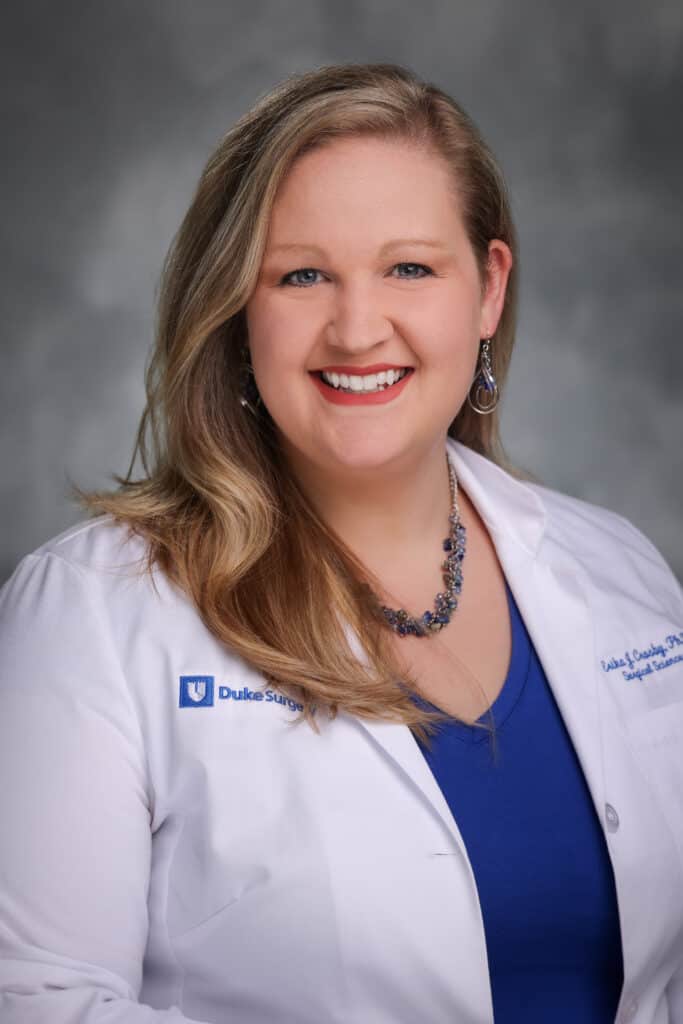
Obesity can cause many health problems, including a higher risk of breast cancer after menopause. Obese breast cancer patients are also at higher risk of mortality from breast cancer, as well as other causes not related to breast cancer. Close to 42% of the U.S. population is considered obese, with the Black community having the highest rate of obesity compared to other races and ethnicities, which contributes to health inequities felt by this community.
“The Black community is disproportionately affected by the obesity epidemic, and it has struck me as a huge hole in the research landscape and something that’s important to press into.”
Researchers recently noticed an unusual paradox while treating obese breast cancer patients. While obese patients experience a chronic state of inflammation in their bodies, they also seem to respond better than other patients to a certain class of immunotherapies. How does obesity impact a person’s biological response to immunotherapies, and is there a specific biomarker that could be identified and used to develop more effective treatments for these patients?
Through her new Komen-funded study, Komen researcher Erika Crosby, Ph.D., is hoping to answer these questions, with a goal of improving treatment outcomes for obese women with triple negative breast cancer (TNBC), especially Black women. Dr. Crosby, who is an assistant professor at Duke University and an immunologist, is dedicated to improving the effectiveness of immunotherapies and ensuring breast cancer research is representative and beneficial to all.
“The Black community is disproportionately affected by the obesity epidemic, and it has struck me as a huge hole in the research landscape and something that’s important to press into,” says Dr. Crosby.
Detecting Elusive Invaders
Immunotherapies are a promising class of drugs that help boost a person’s own immune system to recognize and fight tumor cells. But because tumor cells are smart, they can sometimes disguise themselves and trick the immune system into thinking they are healthy cells.
Using surface proteins called immune checkpoints, tumor cells can put the brakes on an immune reaction, telling immune cells not to attack them. A type of immunotherapy called immune checkpoint inhibitors are advanced drugs that help the immune system to “unmask” these disguised tumor cells and release the brakes, allowing the immune system to do its job.
Immune checkpoint inhibitors have already led to improved treatment outcomes for TNBC patients, but there is still much to be understood about how an individual’s unique biology impacts their effectiveness.
Seeking New Treatment Options for TNBC
Dr. Crosby was recently awarded a Komen Career Catalyst Research grant for her project “The paradox of obesity, tumor progression, and checkpoint inhibition in TNBC.” For this study, she will first use a combination of obese and non-obese preclinical models to test two different immune checkpoint inhibitor drugs used to treat TNBC and evaluate how well each group responds to these treatments.
Next, she will repeat this test with a preclinical model that has been genetically modified to not express the immune checkpoint protein at all. Dr. Crosby hypothesizes that this protein plays an important role between the obese and non-obese models, and this test will determine how important it is.
Finally, Dr. Crosby will examine data from a diverse group of women with breast cancer that have various body mass indexes (BMIs) and treatment histories to determine whether the same immune responses that happened in her obese clinical models will also happen in obese people. Working collaboratively with Komen investigator Dr. Melissa Troester from the University of North Carolina, Dr. Crosby will use patient data taken from the Carolina Breast Cancer study, which includes participants that are half Black, and half white, while about half are obese and half are lean. This information could help researchers design more effective immunotherapies and greatly improve outcomes for obese women with TNBC in the Black community.
“The main goal of the project is to see if we can understand something biologically that has changed in an obese individual that’s targetable, that’s actionable,” says Dr. Crosby. “My hope is that as we build that data set, we’ll be able to empower these underrepresented communities and their physicians to make better treatment decisions that are based on science and evidence-based testing.”
Collaborating for a Cure
This exciting progress would not be possible without the open collaboration and sharing of data between different researchers and institutions, as the research community is shifting away from a climate of competition and working together toward the same common goal.
As Dr. Crosby observes, collaboration between institutions and funding agencies is what’s really going to accelerate progress in the breast cancer research community. Exciting new treatment options like immunotherapies could dramatically improve survival for people living with TNBC.
“As an immunologist, I might be a little biased, but I think immunotherapy will provide our first opportunity for an actual cure,” says Dr. Crosby. “There’s a lot of hope there.”



